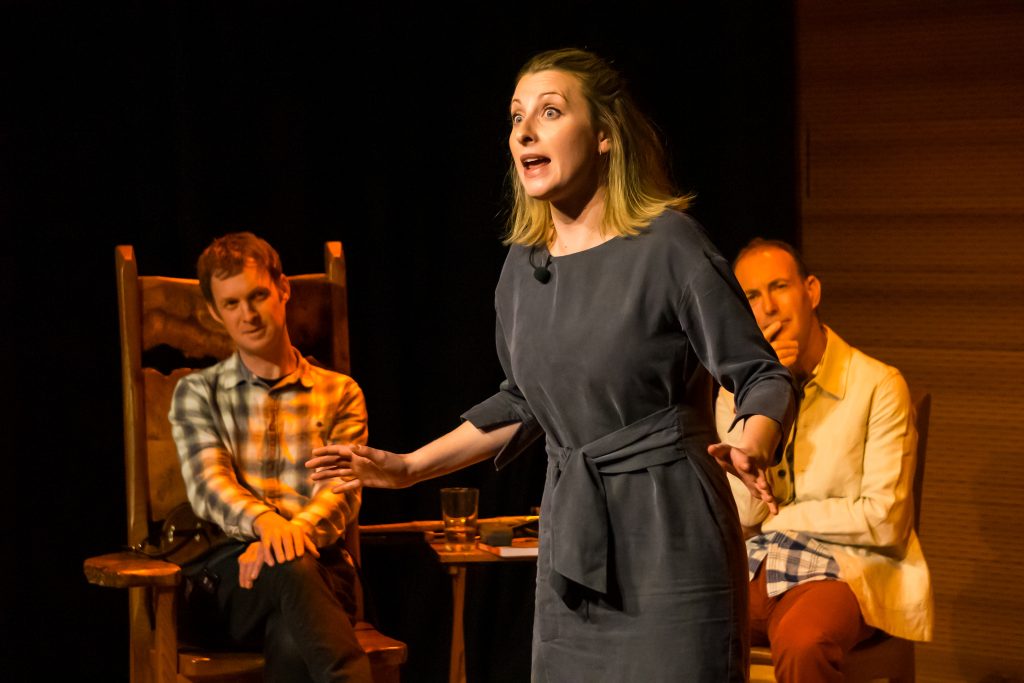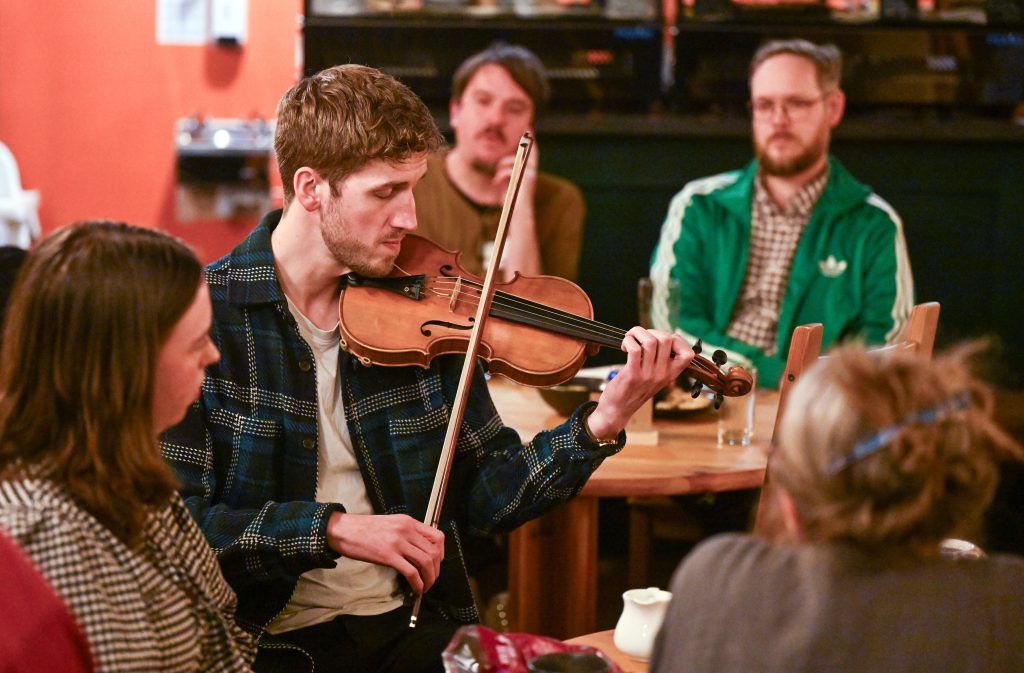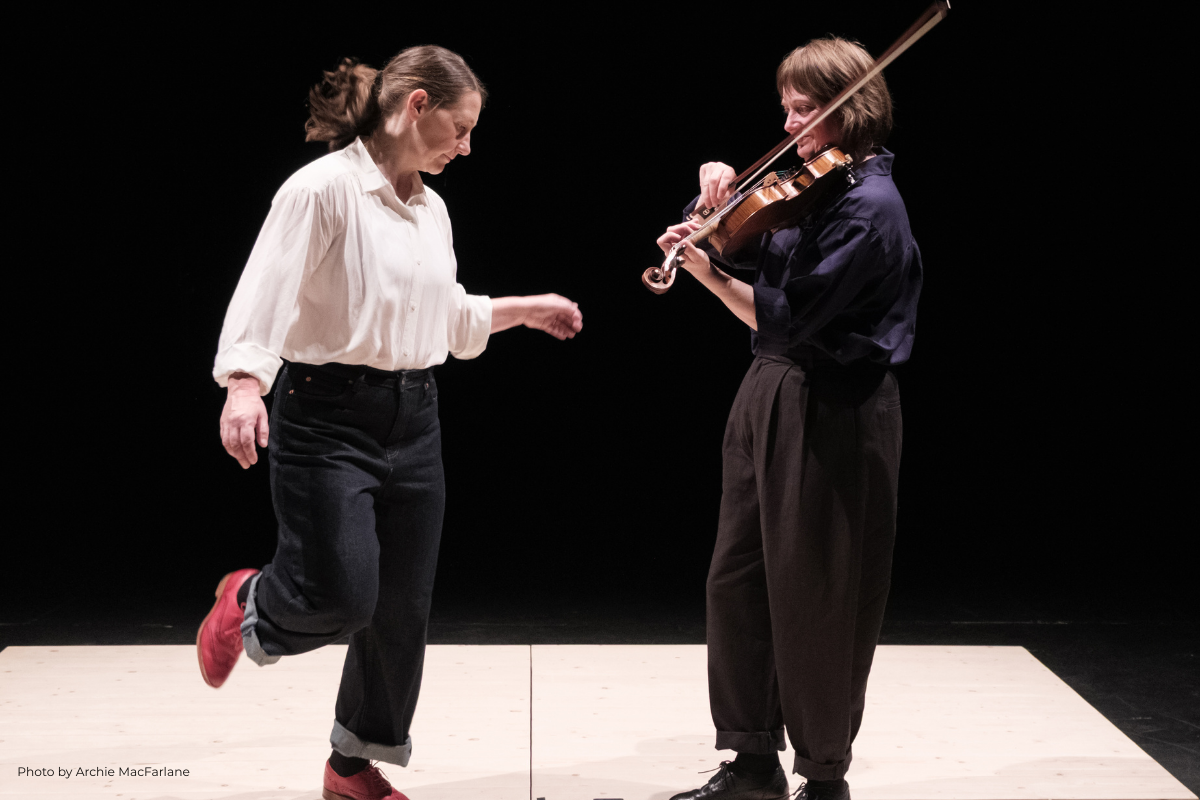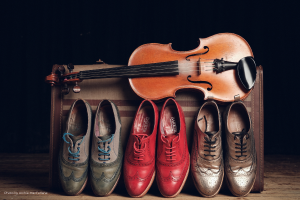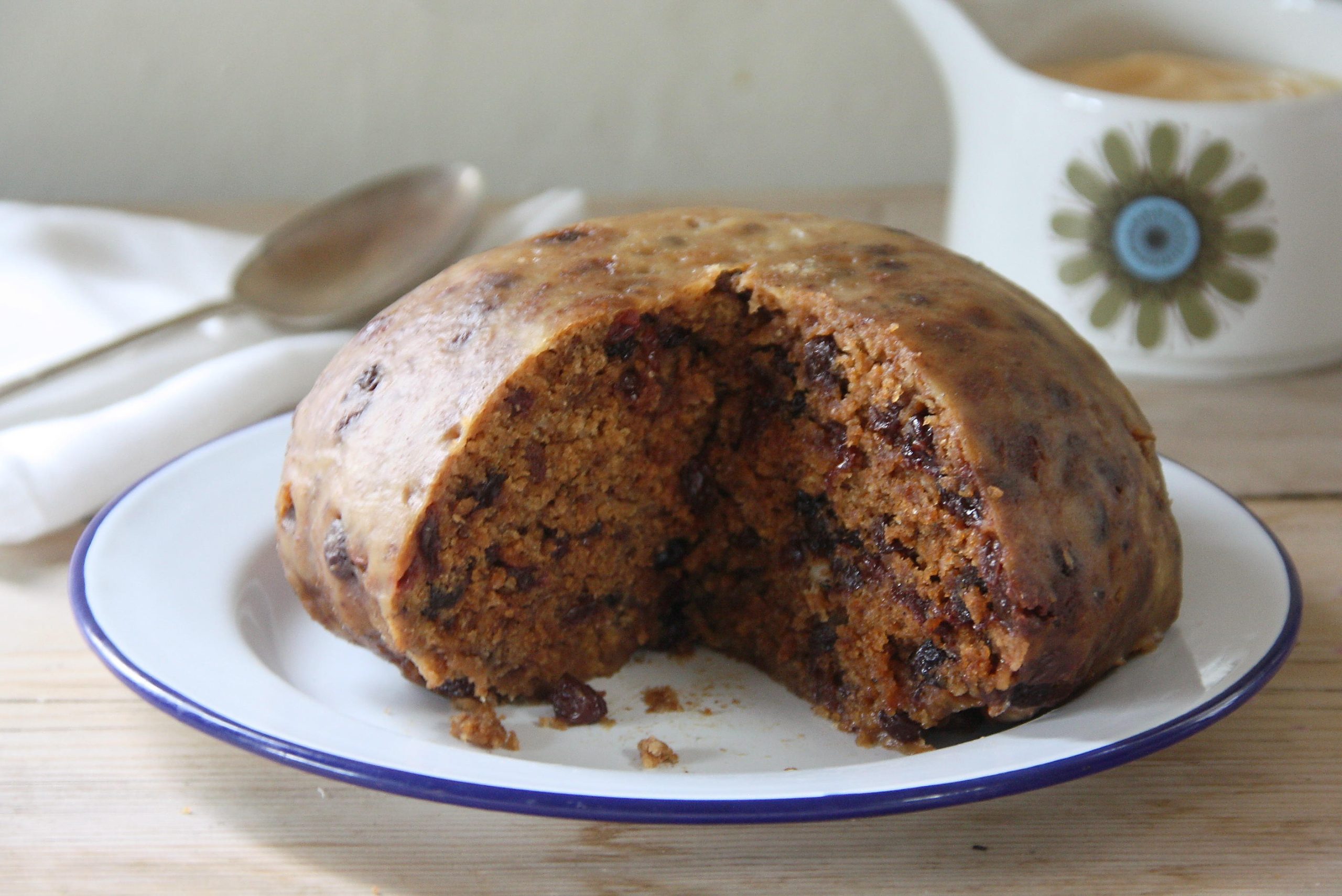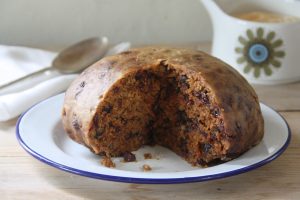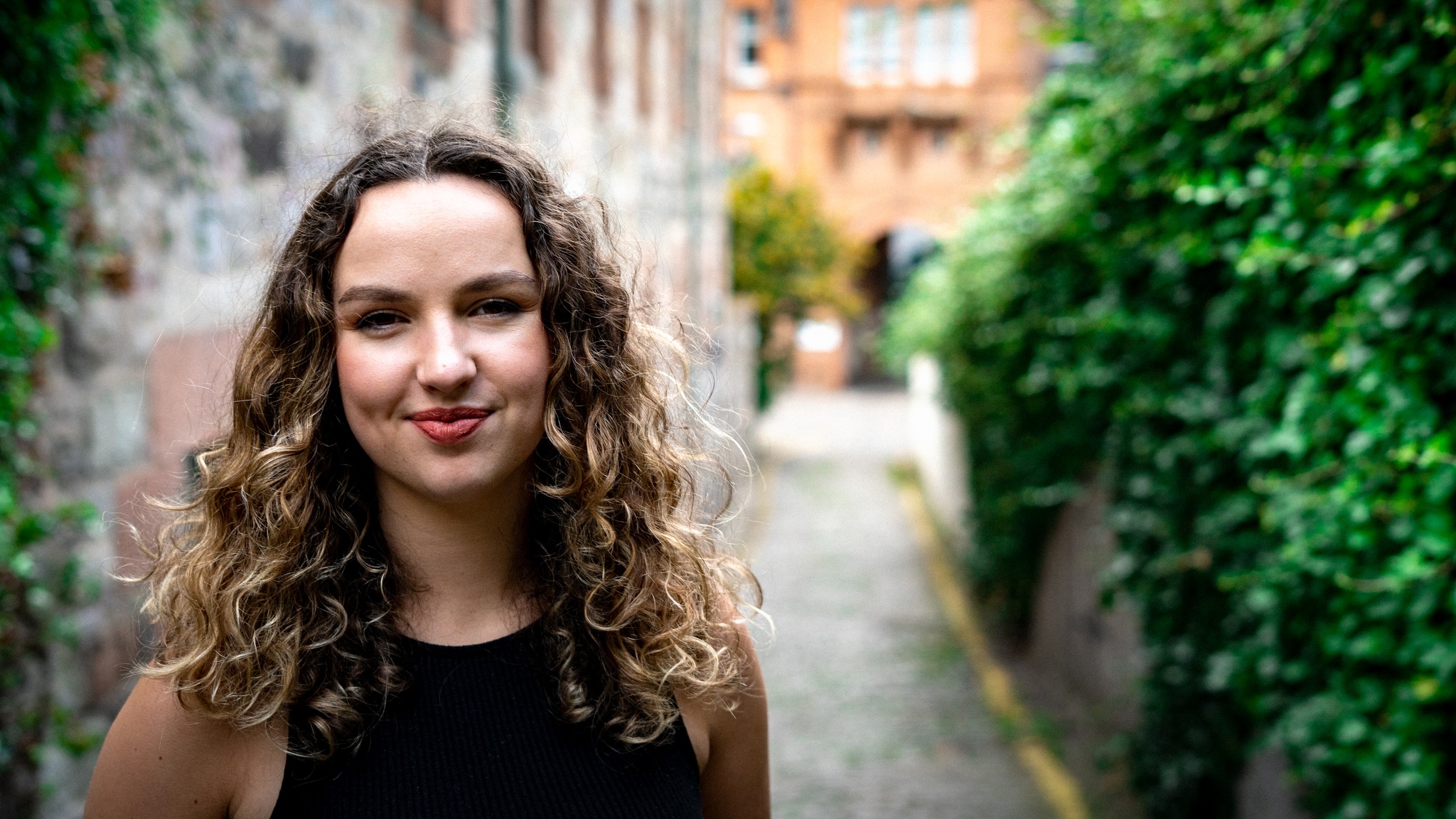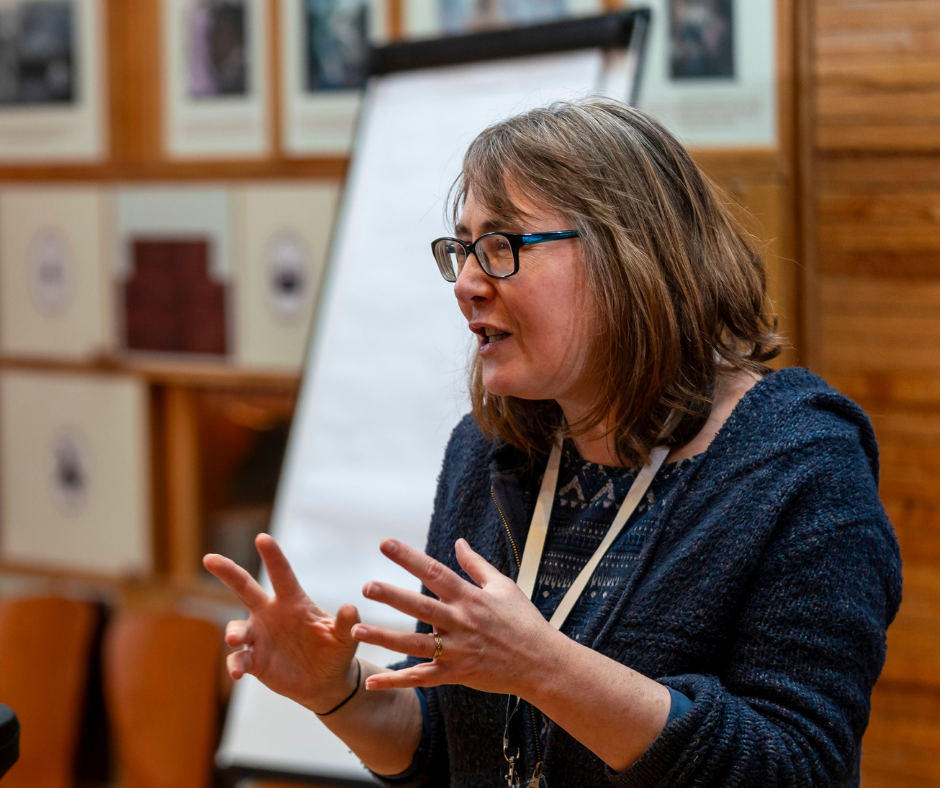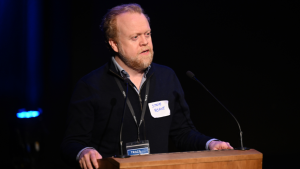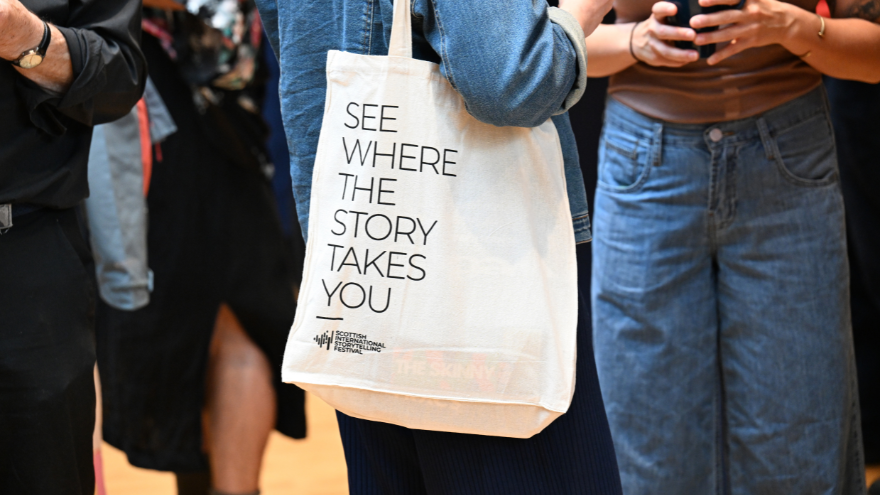Everyone is talking about “Intangible Cultural Heritage”, but what is it and why is it important?
We’ve put together a Wee Guide to Intangible Cultural Heritage to answer some of the frequently asked questions.
A Wee Guide to Intangible Cultural Heritage
What is Intangible Cultural Heritage (ICH)?
Simply put, you might know it as “tradition”. It’s our knowledge as communities and societies which is passed down through generations. This includes traditional songs, dances, storytelling, customs and rituals of everyday life, how we celebrate at different times of the year, traditional foods, and traditional ways of making things. Very often, these practices are expressed in local languages, such as Scots or Gaelic. Sometimes these skills relate to buildings or making physical items, but it’s the traditional knowledge – which you probably learned from someone else in your community – that is key.

Where does the concept of ICH come from?
Since the 1970s, countries started to recognise that most international policy was geared towards physical or tangible heritage in the built environment, as captured in UNESCO’s list of World Heritage sites. Who was looking after the folk songs, the dances, the stories and other cultural expressions of humanity? In 1989, UNESCO published its Recommendation on the Safeguarding of Traditional Culture and Folklore, which paved the way for the 2003 UNESCO Convention on the Safeguarding of Intangible Cultural Heritage.
Just like built heritage, UNESCO has an international list of recognised ICH practices from around the world, including those at risk of being lost. Countries who sign up are asked to make their own ‘national’ lists or inventories of the ways of life and cultural expressions that are important to them. There are also multiple examples of similar practices found in more than one country, which countries collaborate on to list together, such as the use of henna paste, or the art of dry stone walling.

Why are we using such a fancy term?
Words like ‘folklore’ or their translations in other languages can often have a negative connotation for historical or political reasons; to avoid any misunderstandings, a more neutral term was decided upon at UNESCO. Some people would call it ethnology or public folklore, some might call it simply local traditions, others might use folkways or folklife. Recognising the ‘technical’ nature of the official name, in recent years UNESCO has also adopted the term Living Heritage.

Why do we need to look after our Living Heritage?
At TRACS we think it is important to acknowledge and celebrate local differences and distinctiveness that form part of our identities as individuals, families and communities, through our songs, stories, dances, customs and local practices. Sometimes these are seen as everyday expressions or skills, “just something I do”, so they can often be taken for granted, and in time, become lost or forgotten.
No matter where they started off, we believe that local traditions are great tools for helping communities feel confident in themselves, better equipped to recognise local diversity and to positively engage with cultures from other parts of the world.

What are the categories of Living Heritage?
While there are 5 broad categories or ‘domains’ at UNESCO, the UK has, like some other countries, expanded upon this. Here are some examples in the Scottish context:
- Oral Expressions storytelling, bothy ballads, waulking songs, the Traveller languages Cant and Beurla Reagaird, the piping notation system called Canntaireachd
- Performing Arts traditional music, song, dance, storytelling, clàrsach, piping traditions, Scottish stepdance, folk drama such as Galoshins
- Social Practices First footing, the Burry Man of South Queensferry, town galas, guising, traditional foods, wedding ‘blackenings’ in fisher communities, Hogmanay, Beltane
- Nature, Land, and Spirituality superstitions of fisherfolk, plant lore, harvest traditions, weather predictions
- Crafts instrument making, basket weaving, dry stane dyking, knitting traditions, boatbuilding, straw working, roof thatching
- Sports and Games Ba Games in the Borders and Orkney, shinty, skipping or playground games, highland games, curling
- Culinary Practices local foodstuffs: tablet, shortbread, cranachan, stovies, soup making, clootie dumpling, porridge making
Some of the above is captured in online resources like Tobar an Dualchais / Kist o Riches.

Who decides what should be added to the Living Heritage inventory?
Communities themselves decide on what they want to celebrate and safeguard as part of their local traditions. They can choose to put them on their national inventory and if they want to submit a particular practice to UNESCO for its world list of intangible cultural heritage. Ireland, for example, has its musical traditions of harping and uilleann piping inscribed on the world list, along with the traditional Gaelic sport of hurling.

Who has signed up? What has Scotland / the UK done about it so far?
Better late than never! The UK ratified UNESCO’s 2003 Convention on Intangible Cultural Heritage in spring 2024, joining 183 other countries. It came into force on 7 June, with the Department for Culture, Media and Sport (DCMS) engaging in a range of public consultations.
TRACS is part of the ICH Scotland Partnership with other key national bodies – Museums Galleries Scotland, Historic Environment Scotland and Creative Scotland – working to celebrate and safeguard ICH in Scotland. In 2021, the Partnership published a landmark report mapping Scotland’s intangible heritage.
Collectively the partnership will continue to host an annual conference on ICH, while working to develop an inventory of ICH in Scotland and a national approach to ICH safeguarding which is rooted in local communities.
ICH creates opportunities for Scotland on the world stage, as we join global networks to promote and safeguard local cultural practices.
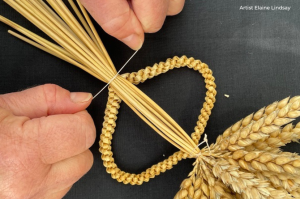
What is TRACS’ role?
In 2024, TRACS was recognised by UNESCO as an accredited advisory organisation on ICH, with its vast expertise and networks in traditional arts, working with practitioners and communities.
TRACS supports Living Heritage through our work programmes in the areas of traditional dance, music and storytelling, traditional crafts and indigenous languages, as well as through the Scottish International Storytelling Festival, and the The People’s Parish project.
As a UNESCO-accredited adviser, TRACS is working closely with DCMS and partners as the UK’s ICH engagement process develops. As one of 10 Living Heritage Support Hubs will be running a range of information sessions and roundtables during 2026 to support communities in submitting their practice to the Inventories of Living Heritage.
Are you a practitioner, fellow organisation, or simply interested in ICH? Please get in touch by emailing intangibleculturalheritage@tracscotland.org


